Getting more girls into science - seminar in China
Jesper Boesen, Associate Professor in Mathematics Education and Head of Collaboration at the School of Education and Communication (HLK) at Jönköping University (JU), travelled to China in mid-October together with a group of experts from the European Commission. The trip was an exchange visit to discuss how to create more interest among younger girls in careers in the STEM fields (Science, technology, engineering, and mathematics).
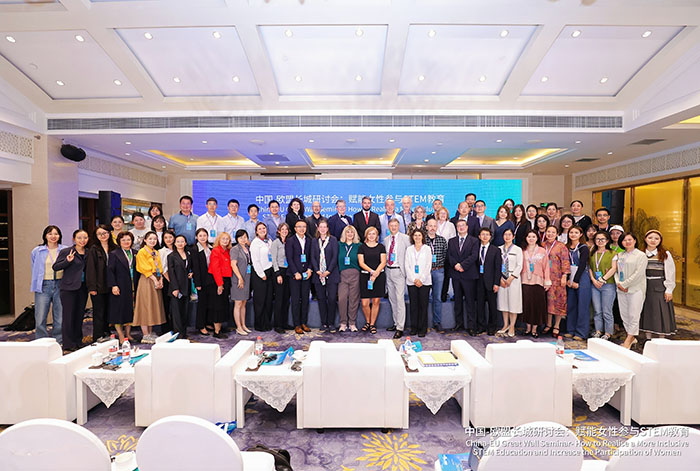
Photo: The organiser
Since 2015, Jesper Boesen has been active in the International Centre for STEM Education (ICSE), an internationally affiliated research consortium based at the University of Education in Freiburg, Germany. The aim of ICSE is to help improve STEM education across Europe through practice-related research and its transfer into practical application. Jesper has been the Swedish project manager for four of these major EU projects. Having this experience, Jesper was asked by the ICSE consortium, which in turn had been asked by the European Commission, to represent the Commission at the seminar as part of a delegation of15 European experts.
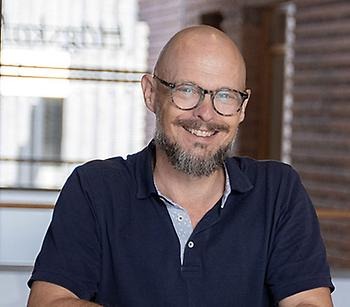%20jesper_b_.jpg)
Jesper Boesen
“I have worked with these issues from a Swedish and European perspective for several years, so I thought it would be exciting to hear about how things work in the Chinese education system and whether we can learn from each other. It is also a fantastic experience to work with the European Commission. Apart from the fact that it was quite a lot of work with the visa application, our Chinese colleagues had organised everything very well,”he says.
In the EU, we know that it is difficult to retain girls' interest in STEM subjects, hence the many projects that are underway to turn this around. The European Commission has not had much insight into the situation in China, but after the conference it is clear that the Chinese face similar challenges in the STEM professions.
"Opened many doors"
The importance of the EU-China Seminar: How to Realise a More Inclusive STEM Education and Increase the Participation of Women for the host country became clear when China's Vice Minister of Education gave the welcome speech. European Commissioner Iliana Ivanova (from Bulgaria) also gave an opening speech via a digital link.
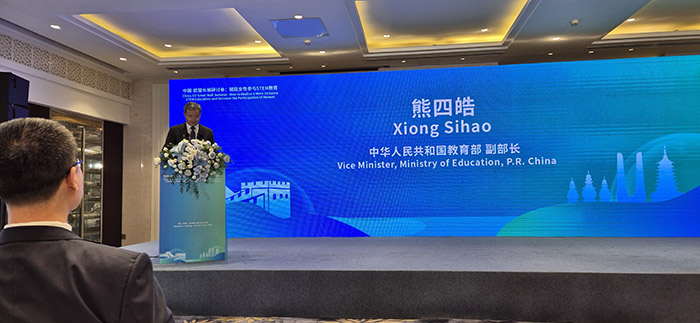
Xiong Sihao, China's Vice Minister of Education.
The seminar was held in Hangzhou, a city in China with a population of around 12 million. About a hundred participants attended the seminar, which consisted of presentations of various projects, ongoing research, panel discussions and discussions in front of a large audience in an auditorium. The Chinese presentations were mostly about organisations and activities. The full programme can be found here. pdf, 897.2 kB, opens in new window.
“I moderated a panel discussion entitled “Setting the Scene: Barriers to Girls’ Participation in STEM Education: Insights From Research” where Maria Luz Guenaga Gomez, Associate Professor at the University of Deusto, Anna Danielsson, Professor at Stockholm University, Junqing Zhai, Associate Professor at Zhejiang University and Lili Zhang, Professor at Beijing University, discussed the topic and answered questions,” says Jesper.
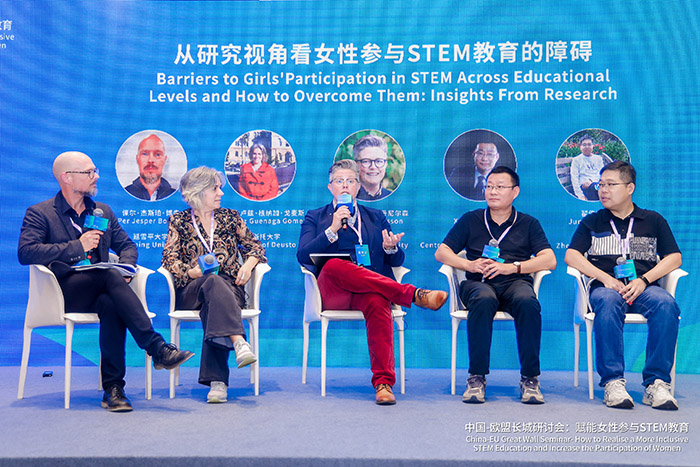
Panel discussion with Jesper as facilitator. Photo: The organiser
In addition to participating in lectures and panel discussions, the delegation also went on several study visits. They visited a cultural history museum that focused on storytelling, and a science museum that was similar to Upptech in Jönköping, but ten times as big. They also got to take part in a school lesson. The delegation learnt that in China, lessons are planned more collectively than in Europe and Sweden. There, teachers plan lessons together, so that any teacher can carry out a particular lesson. As a result, the lessons are more prescribed lessons.
The seminar was successful with important exchanges of ideas. One of the conclusions from both the EU and China is that even those who do not work in the STEM fields or produce new knowledge about it, need to be more aware of how, for example, new technologies work. A broader mass of the population needs to understand the mechanisms and a broader knowledge is needed in the field. Jesper has written a short summary of his session and sent it to the organisers who will compile a report on the seminar. Whether this was the start of further co-operation with China on these issues remains to be seen.
“No further exchanges are planned. The seminar has however opened many doors and opportunities for increased co-operation with China in this area, although no such discussions are as yet taking place at JU. I have learnt a lot about China's education system and how they deal with these issues. They were also very generous and gave us a rich social programme,” concludes Jesper Boesen.
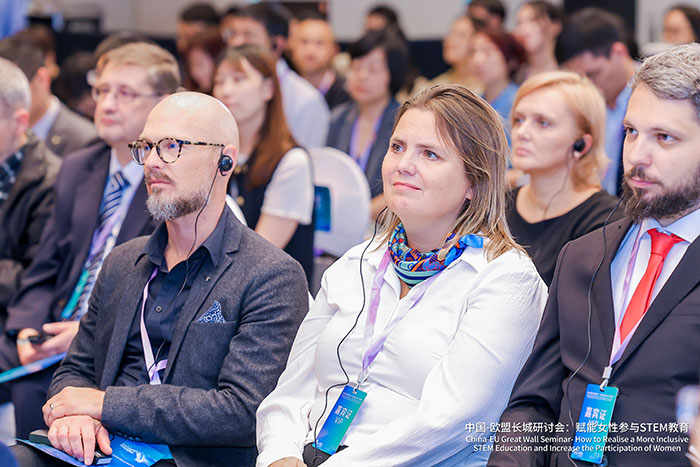
Photo: The organiser.
